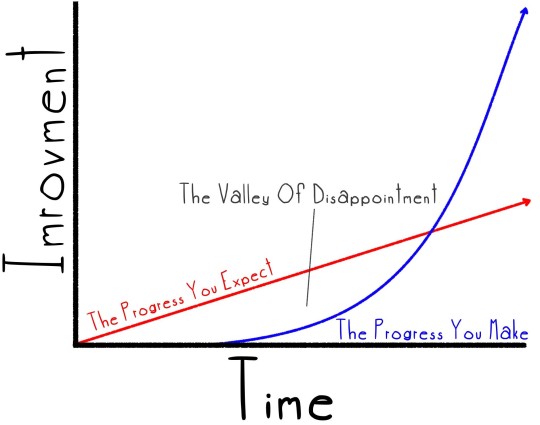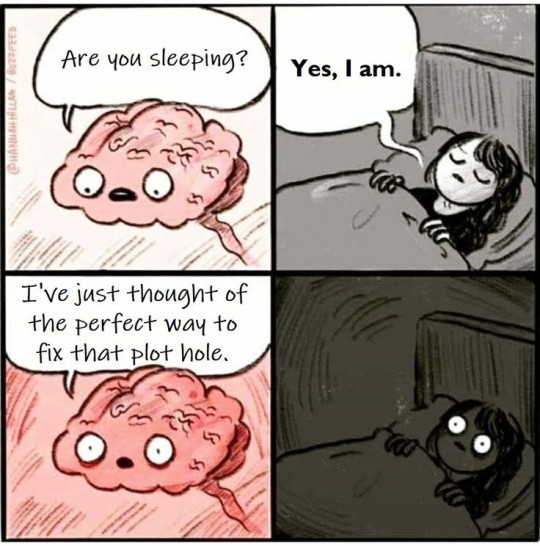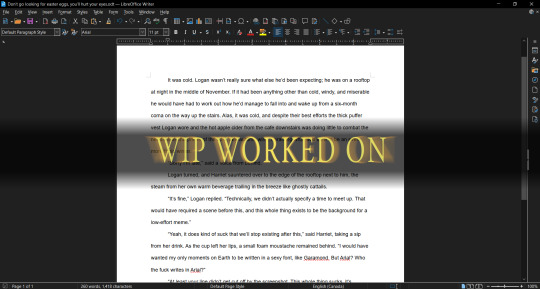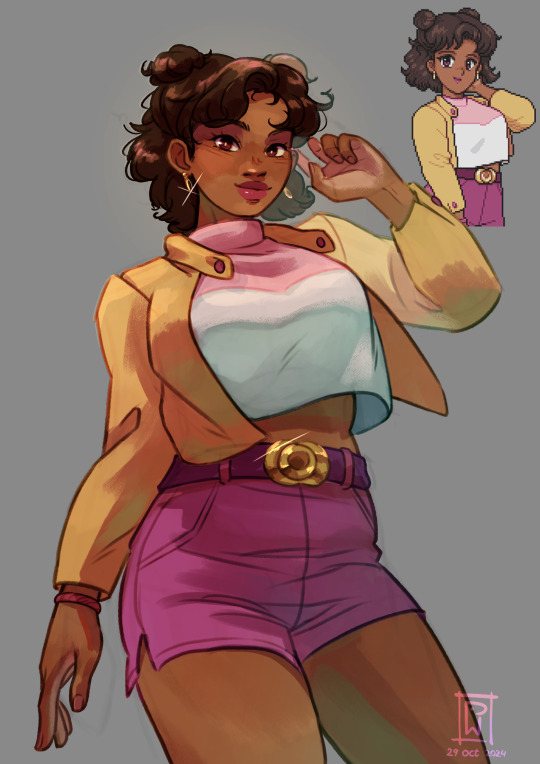#creative struggle
Explore tagged Tumblr posts
Text

If anyone needs me I'll be in the valley of disappointment 🫡
#made this graph to show you where I am#valley of disappointment#digital art#art#artist support#art community#artist#artists on tumblr#art friends#artist friends#artist stuff#artist struggles#struggle#creative struggle#creative process#art struggles#graphs#queued post#scheduled#🧅 Art
5 notes
·
View notes
Text
Ya know... I really want to make music. Not as a living or anything, I just want to be able to make music.
There are so many reasons that I haven't.
I barely have basic knowledge of how to read music, it takes me forever and I can't relate it back to sound, so it's kinda useless to me.
I'm not a very good singer, I'm really out of practice and don't have the range I'm comfortable with.
I don't really know how to play any instrument past very slow basics.
I haven't found a free or affordable program to make the music I want to make.
I struggle with creating the actual music part, the instrumentals and such.
There are a lot of reasons why I want to start.
I sing to release excess emotion I can't figure out how to express or expel.
When talking and singing to myself I'm constantly making up lyrics and rhymes that build off of one another and balance each other.
Songs that don't exist play in my dreams.
There is almost always a song or tune playing in my head as a kind of background noise to my own thoughts.
I have things I want to express through music and sensations I want to share through sound.
I really want to be able to bring the tunes and melodies in my head into reality. Right now, when I have something I like, a bit of anything, I just make sure to record it to the best of my abilities in hopes that one day I'll be able to do something with it.
#music#creativity#creative struggle#learning music#making music#music programs#music software#sorry's thoughts
3 notes
·
View notes
Text
sometimes the best writing advice is "just let it be bad." revolutionary. terrifying. but it works.
#writing#writeblr#writer problems#writing humor#writers on tumblr#writing memes#writing community#writing struggles#writer life#creative writing#writer things#writing motivation#ao3 writer#writer memes#writing is hard#on writing#writerblr#writers block#writing funny#writer thoughts#fiction writing#writer struggles#writing tips#writing advice#writer woes#writing woes#writer quotes#writing inspiration#plot problems#writer chaos
34K notes
·
View notes
Text
absolutely love abusing the power that comes with 3rd person limited pov and just ignoring things and being vague sometimes. does the character know all the details? no? then I don't have to either.
#writeblr#writers on tumblr#ao3#ao3 writer#ao3 author#writing#ao3 fanfic#writers#writer stuff#writer's block#writers block#writers life#writer humor#writer struggles#writer problems#writer#writing is hard#female writers#writer woes#creative wrting#novel writing#fanfics#fanfiction#fanfic#fanfic writing#ElleLDoe
11K notes
·
View notes
Text

Cause of my insomnia number one:
#writer#writers on tumblr#writerscommunity#writing#books#books and reading#creative writing#my writing#writer things#writeblr#writers#write#writings#writers community#writing community#creative writers#writer community#writing stuff#writing struggles#writers on writing#writers life#writers blog#writers block#writing life#writing blog#writing books#writing block
13K notes
·
View notes
Text
Tips for writing flawed but lovable characters.
Flawed characters are the ones we root for, cry over, and remember long after the story ends. But creating a character who’s both imperfect and likable can feel like a tightrope walk.
1. Flaws That Stem From Their Strengths
When a character’s greatest strength is also their Achilles' heel, it creates depth.
Strength: Fiercely loyal.
Flaw: Blind to betrayal or willing to go to dangerous extremes for loved ones.
“She’d burn the whole world down to save her sister—even if it killed her.”
2. Let Their Flaws Cause Problems
Flaws should have consequences—messy, believable ones.
Flaw: Impatience.
Result: They rush into action, ruining carefully laid plans.
“I thought I could handle it myself,” he muttered, staring at the smoking wreckage. “Guess not.”
3. Show Self-Awareness—or Lack Thereof
Characters who know they’re flawed (but struggle to change) are relatable. Characters who don’t realize their flaws can create dramatic tension.
A self-aware flaw: “I know I talk too much. It’s just… silence makes me feel like I’m disappearing.” A blind spot: “What do you mean I always have to be right? I’m just better at solving problems than most people!”
4. Give Them Redeeming Traits
A mix of good and bad keeps characters balanced.
Flaw: They’re manipulative.
Redeeming Trait: They use it to protect vulnerable people.
“Yes, I lied to get him to trust me. But he would’ve died otherwise.”
Readers are more forgiving of flaws when they see the bigger picture.
5. Let Them Grow—But Slowly
Instant redemption feels cheap. Characters should stumble, fail, and backslide before they change.
Early in the story: “I don’t need anyone. I’ve got this.”
Midpoint: “Okay, fine. Maybe I could use some help. But don’t get used to it.”
End: “Thank you. For everything.”
The gradual arc makes their growth feel earned.
6. Make Them Relatable, Not Perfect
Readers connect with characters who feel human—messy emotions, bad decisions, and all.
A bad decision: Skipping their best friend’s wedding because they’re jealous of their happiness.
A messy emotion: Feeling guilty afterward but doubling down to justify their actions.
A vulnerable moment: Finally apologizing, unsure if they’ll be forgiven.
7. Use Humor as a Balancing Act
Humor softens even the most prickly characters.
Flaw: Cynicism.
Humorous side: Making snarky, self-deprecating remarks that reveal their softer side.
“Love? No thanks. I’m allergic to heartbreak—and flowers.”
8. Avoid Overdoing the Flaws
Too many flaws can make a character feel unlikable or overburdened.
Instead of: A character who’s selfish, cruel, cowardly, and rude.
Try: A character who’s selfish but occasionally shows surprising generosity.
“Don’t tell anyone I helped you. I have a reputation to maintain.”
9. Let Them Be Vulnerable
Vulnerability adds layers and makes flaws understandable.
Flaw: They’re cold and distant.
Vulnerability: They’ve been hurt before and are terrified of getting close to anyone again.
“It’s easier this way. If I don’t care about you, then you can’t leave me.”
10. Make Their Flaws Integral to the Plot
When flaws directly impact the story, they feel purposeful rather than tacked on.
Flaw: Their arrogance alienates the people they need.
Plot Impact: When their plan fails, they’re left scrambling because no one will help them.
Flawed but lovable characters are the backbone of compelling stories. They remind us that imperfection is human—and that growth is possible.
#writerblr#writers#creative writing#creative writing tips#Writing tips#fanfiction#fanfic writing#Fanfic writer#fanfiction writing#fiction writing#writing#am writing#tumblr writing community#writers on tumblr#writing advice#fic writing#writing community#writing inspo#writers on ao3#writers on ao3 writers on tumblr#AO3 fic#ao3 writing community#writing stuff#wip#writers block#writer things#writer life#writer struggles#writing help#xyywrites
9K notes
·
View notes
Text
I know this is the website where we talk about artists and writers doing anything other than making art or writing, but man, we REALLY undersell how good it feels to actually work on your stuff.
Like you hit your word count for the first time in a week and its like

#my posts#writing#writeblr#writers on tumblr#writers#writer#writing community#creative writing#writerblr#writer things#writers block#writers life#writers and poets#writerscommunity#writer stuff#writing funny#on writing#write#writing meme#writing memes#writing struggles#writing problems#writing humor#writer problems#writing is hard#motivation#writing motivation#autumn#writing aesthetic
13K notes
·
View notes
Text
Blank Slate
It's okay to have weekends where the first day is spent working up the courage to do a thing, the second day you do the thing, and then realise it's not what you want and undo it. The weekend may feel wasted, but it isn't. You found you possess the courage to try and fail. Preparing the blank slate shows faith in the potential for a next try. And you're that much closer to bringing your vision into being.
0 notes
Text
Tips from a Beta Reading Writer
This one's for the scenes with multiple characters, and you're not sure how to keep everyone involved.
Writing group scenes is chaos. Someone’s talking, someone’s interrupting, someone’s zoning out thinking about breadsticks. And if you’re not careful, half your cast fades into the background like NPCs in a video game. I used to struggle with this so much—my characters would just exist in the scene without actually affecting it. But here��s what I've learned and have started implementing:
✨ Give everyone a job in the scene ✨
Not their literal job—like, not everyone needs to be solving a crime or casting spells. I mean: Why are they in this moment? What’s their role in the conversation?
My favourite examples are:
The Driver: Moves the convo forward. They have an agenda, they’re pushing the action.
The Instigator: Pokes the bear. Asks the messy questions. Stirring the pot like a chef on a mission.
The Voice of Reason: "Guys, maybe we don’t commit arson today?"
The Distracted One: Completely in their own world. Tuning out, doodling on a napkin, thinking about their ex.
The Observer: Not saying much, but noticing everything. (Quiet characters still have presence!)
The Wild Card: Who knows what they’ll do? Certainly not them. Probably about to make things worse.
If a character has no function, they’ll disappear. Give them something—even if it’s just a side comment, a reaction, or stealing fries off someone’s plate. Keep them interesting, and your readers will stay interested too.
#Tips from the cranberry queen#writing#writeblr#writer problems#writing humor#writers on tumblr#writing memes#writing community#writing struggles#writer life#creative writing#writer things#writing motivation#ao3 writer#writer memes#writing is hard#on writing#writerblr#writers block#writing funny#writer thoughts#fiction writing#writer struggles#writing tips#writing advice#writer woes#writing woes#writer quotes#writing inspiration#plot problems
8K notes
·
View notes
Text
Writing is like, type type type, clackity clack clack- and whoops im on social media now
#writing#writers on tumblr#writeblr#creative writing#writer stuff#writer things#writerscommunity#my writing#writer problems#writer thoughts#writer#writer struggles#shitpost
9K notes
·
View notes
Text
Things I Didn’t Think Would Be Hard To Write But ARE
Walking into a room
Transitioning between scenes without it feeling awkward
Two characters saying “I love you” without it being cringe
Describing a character’s face without using the word “eyes” 500 times
A battle scene that doesn’t feel like a turn-based RPG
#creative writing#writeblr#writers on tumblr#writing#writing community#writing inspiration#female writers#writer struggles#writer thoughts#writers#writer things#writer problems#writer stuff#writers block#fic writing#writing is hard#romance writing#on writing
3K notes
·
View notes
Text

"I've been thinking of a new recipe lately.."
#can you tell I'm struggling to come up with dialogue#march's and balor's came so easily to me#I think I'm pausing on the FoM marriage candidates portraits for now#want to do smth else to spark some creativity again cus I'm feeling stale#fields of mistria#fom reina#fom fanart#o0kawaii0o
4K notes
·
View notes
Text
writing? oh, i’m definitely writing. in my head. during the most inconvenient times. like in the shower or when i’m about to fall asleep. actual typing? no, no, we don’t do that here.
#writing#writeblr#writer problems#writing humor#writers on tumblr#writing memes#writing community#writing struggles#writer life#creative writing#writer things#writing motivation#ao3 writer#writer memes#writing is hard#on writing#writerblr#writers block#writing funny#writer thoughts#fiction writing#writer struggles#writing tips#writing advice#writer woes#writing woes#writer quotes#writing inspiration#plot problems#writer chaos
29K notes
·
View notes
Text
grammar this. grammar that. sometimes 'grammatically correct' just doesn't hit the spot. the vibes are telling me to laugh in the face of the english language and that's exactly what I'm going to do, one incorrectly structured sentence at a time.
#writer community#writers#writers on tumblr#writeblr#writing#writerscommunity#writer humor#writer problems#writer struggles#writers life#creative writing#writing life#novel writing#writers of tumblr#writer stuff#ao3#ao3 author#ao3 writer#writer#writing struggles#writing stuff#ElleLDoe
9K notes
·
View notes
Text
I just realized I've never made a character with the intent to put the things I love into them. I've never sat down and thought, "I should look at the characters I love and craft my own favorite character."
YOU CAN DO THAT!
I CAN DO THAT!
Why have I just been smushing things together to form characters, that I of course love, when I could be carefully sculpting characters I can obsess over and want to constantly work on???
#sorry's thoughts#creative struggle#creative stuff#creative thoughts#original characters#art#writing#creative writing#original character#guess what I'm gonna do sometime#yeah#start a whole new project where i sculpt every aspect of the characters to clean perfection#i don't know if i can tbh#but i wanna try sometime#also i dont really expect perfection because its the flaws that make the greatest characters
0 notes
Text
Overused Words in Writing & How to Avoid Them
We’ve all got our comfort words—those trusty adjectives, verbs, or phrases we lean on like a crutch. But when certain words show up too often, they lose their impact, leaving your writing feeling repetitive or uninspired.
1. “Very” and Its Cousins
Why It’s Overused: It’s easy to tack on “very” for emphasis, but it’s vague and doesn’t pull its weight.
Instead of: “She was very tired.” Try: “She was exhausted.” / “She dragged her feet like lead weights.”
💡 Tip: Use precise, vivid descriptions rather than vague intensifiers.
2. “Looked” and “Saw”
Why It’s Overused: It’s functional but flat, and it often tells instead of shows.
Instead of: “He looked at her in disbelief.” Try: “His eyebrows shot up, his lips parting as if words had failed him.”
💡 Tip: Focus on body language or sensory details instead of relying on generic verbs.
3. “Suddenly”
Why It’s Overused: It’s often used to create surprise, but it tells readers how to feel instead of letting the scene deliver the shock.
Instead of: “Suddenly, the door slammed shut.” Try: “The door slammed shut, the sound ricocheting through the empty room.”
💡 Tip: Let the action or pacing create urgency without needing to announce it.
4. “Said” (When Overdone or Misused)
Why It’s Overused: While “said” is often invisible and functional, using it in every dialogue tag can feel robotic.
Instead of: “I can’t believe it,” she said. “Me neither,” he said. Try: Replace with an action: “I can’t believe it.” She ran a hand through her hair, pacing. “Me neither.” He leaned against the counter, arms crossed.
💡 Tip: Don’t ditch “said” entirely; just mix it up with context clues or action beats.
5. “Felt”
Why It’s Overused: It’s a shortcut that tells instead of showing emotions.
Instead of: “She felt nervous.” Try: “Her palms slicked with sweat, and she couldn’t stop her leg from bouncing.”
💡 Tip: Let readers infer emotions through sensory details or behavior.
6. “Really” and “Actually”
Why It’s Overused: They add little to your sentences and can dilute the impact of stronger words.
Instead of: “I really don’t think that’s a good idea.” Try: “I don’t think that’s a good idea.”
💡 Tip: If a sentence works without these words, cut them.
7. “Walked” or “Ran”
Why It’s Overused: These are go-to movement words, but they can feel bland when used repeatedly.
Instead of: “He walked into the room.” Try: “He strolled in like he owned the place.” / “He shuffled in, avoiding everyone’s eyes.”
💡 Tip: Use verbs that convey mood, speed, or attitude.
8. “Just”
Why It’s Overused: It sneaks into sentences unnecessarily, weakening your prose.
Instead of: “I just wanted to say I’m sorry.” Try: “I wanted to say I’m sorry.”
💡 Tip: Delete “just” unless it adds essential nuance.
9. “Thought”
Why It’s Overused: It tells readers what a character is thinking instead of showing it through internal dialogue or action.
Instead of: “She thought he might be lying.” Try: “His story didn’t add up. The timelines didn’t match, and he wouldn’t meet her eyes.”
💡 Tip: Immerse readers in the character’s perspective without announcing their thoughts.
10. “Nice” and Other Vague Adjectives
Why It’s Overused: It’s generic and doesn’t give readers a clear picture.
Instead of: “He was a nice guy.” Try: “He always remembered her coffee order and held the door open, even when his arms were full.”
💡 Tip: Show qualities through actions instead of relying on vague descriptors.
Final Tips for Avoiding Overused Words:
1. Use a thesaurus wisely: Swap overused words for synonyms, but stay true to your character’s voice and the scene’s tone.
2. Read your work aloud: You’ll catch repetitive patterns and clunky phrases more easily.
3. Edit in layers: Focus on eliminating overused words during your second or third pass, not your first draft.
#writerblr#writers#creative writing#creative writing tips#Writing tips#fanfiction#fanfic writing#Fanfic writer#fanfiction writing#fiction writing#writing#am writing#tumblr writing community#writers on tumblr#writing advice#fic writing#writing community#writing inspo#writers on ao3#writers on ao3 writers on tumblr#AO3 fic#ao3 writing community#writing stuff#wip#writers block#writer things#writer life#writer struggles#writing help#xyywrites
5K notes
·
View notes